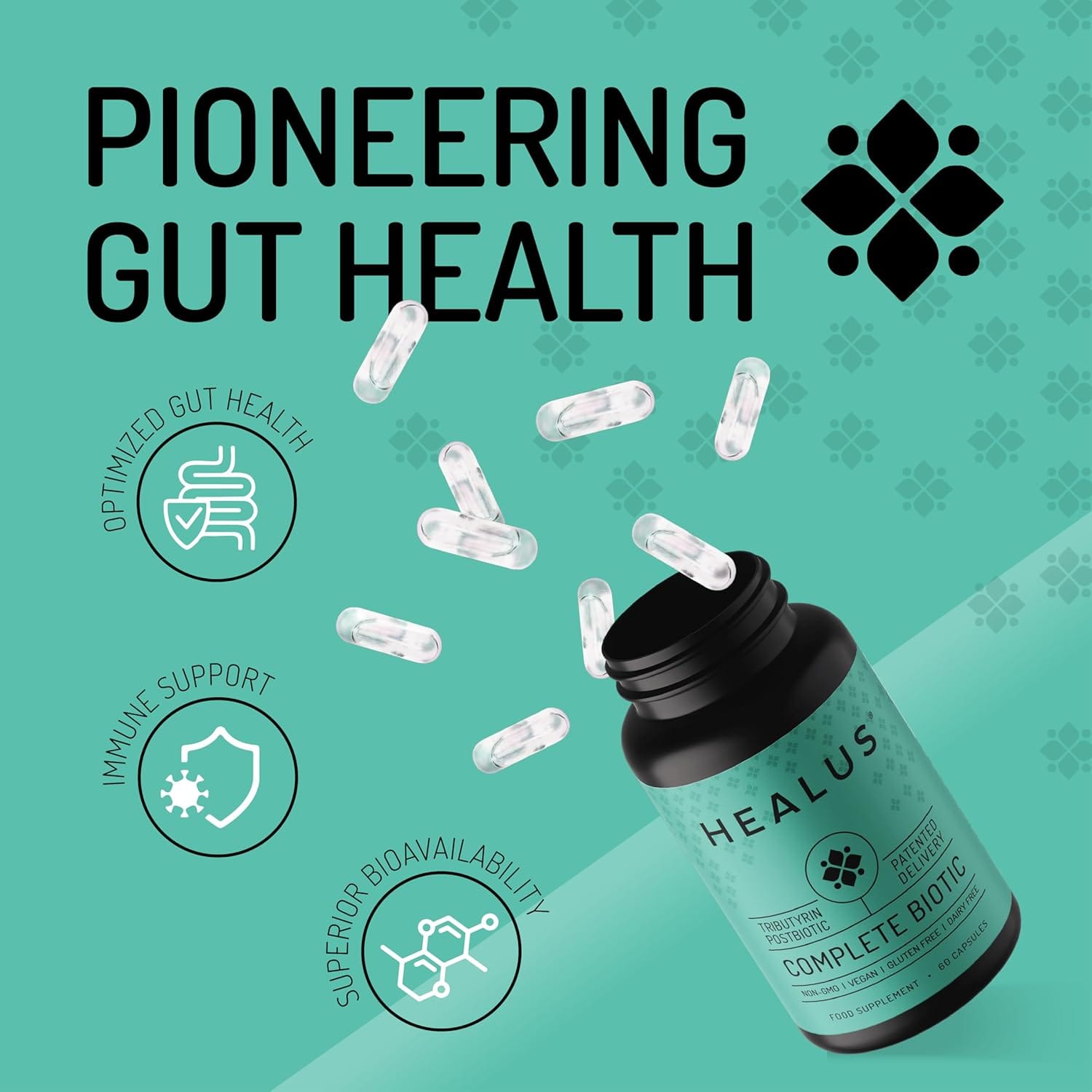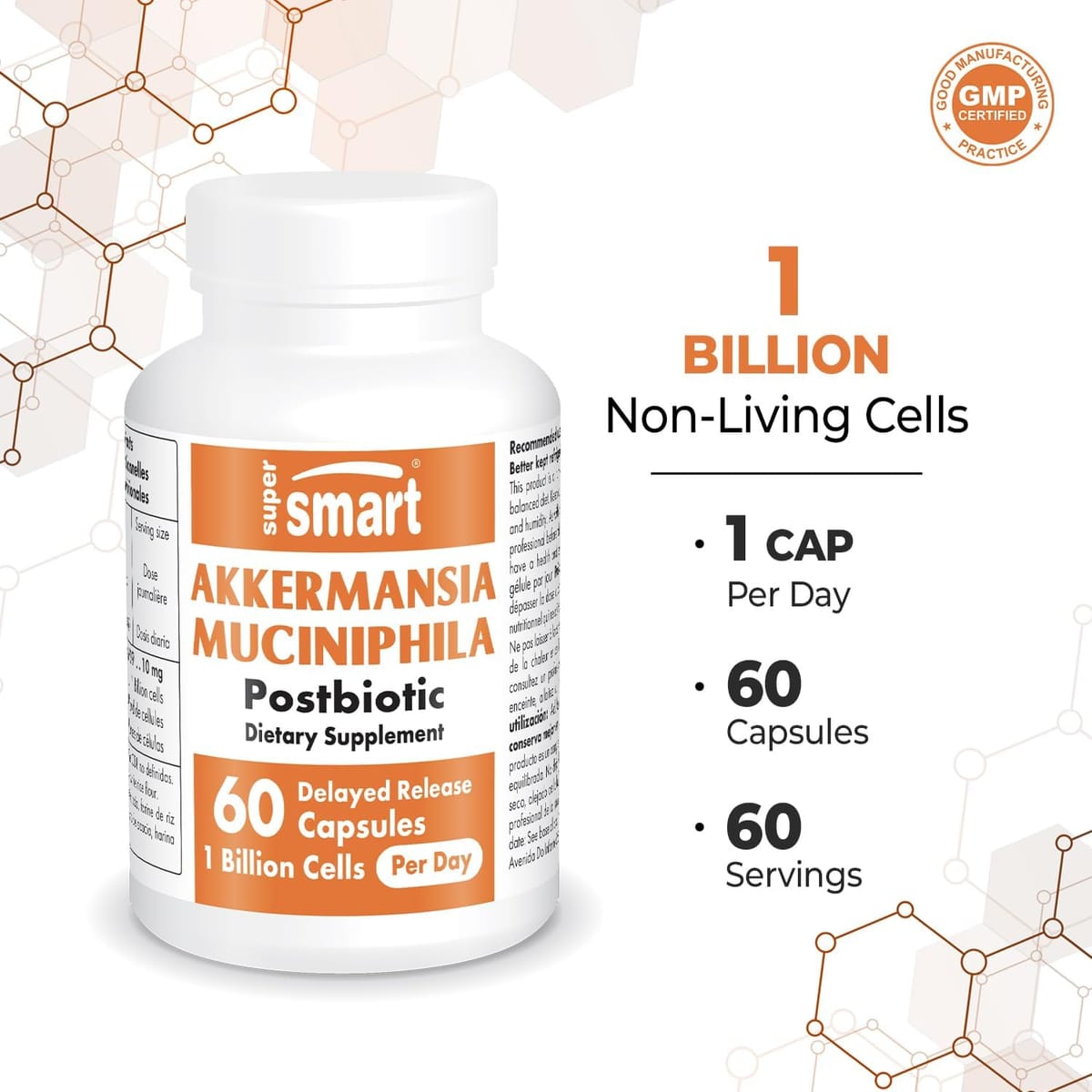Key Takeaways:
- Understanding Postbiotics: Discover what postbiotics are and how they differ from probiotics and prebiotics.
- Health Benefits: Learn about the potential health benefits of incorporating postbiotics into your diet.
- Practical Tips: Get actionable advice on how to include postbiotics in your daily routine.
Introduction to Postbiotics
In the bustling world of health and wellness, postbiotics are emerging as the new kid on the block. Unlike their more famous cousins, probiotics and prebiotics, postbiotics are the byproducts of probiotic bacteria. Think of them as the unsung heroes that work behind the scenes to boost your health. They are the metabolites or cell-wall fragments left behind after probiotics consume prebiotics.
Postbiotics are gaining traction due to their potential health benefits. They are believed to enhance gut health, support the immune system, and even improve skin conditions. As more research unfolds, the spotlight on postbiotics is only getting brighter. So, how can you harness the power of these tiny but mighty compounds?
What Are Postbiotics?

Postbiotics are essentially the waste products of probiotic bacteria. When probiotics digest prebiotics, they produce postbiotics. These include short-chain fatty acids, enzymes, peptides, and other bioactive compounds. Unlike probiotics, which are live bacteria, postbiotics are non-living, making them more stable and easier to incorporate into various products.
The beauty of postbiotics lies in their stability. They don't require refrigeration and are less sensitive to environmental changes, making them a convenient option for those looking to improve their gut health without the hassle of maintaining live bacteria.
The Difference Between Probiotics, Prebiotics, and Postbiotics
Probiotics are live bacteria that confer health benefits when consumed in adequate amounts. Prebiotics, on the other hand, are non-digestible fibers that feed probiotics. Postbiotics are the end products of this interaction, offering their own unique health benefits.
While probiotics and prebiotics have been the focus of gut health for years, postbiotics are now being recognized for their potential to enhance health in ways that their predecessors cannot. They offer a more stable and potentially safer alternative, especially for those with compromised immune systems.
Health Benefits of Postbiotics

Postbiotics are believed to offer a range of health benefits. They can help improve gut health by maintaining the integrity of the gut lining and reducing inflammation. This can lead to better digestion and absorption of nutrients.
Moreover, postbiotics have been linked to enhanced immune function. They can stimulate the production of antibodies and modulate the immune response, making them a valuable ally in the fight against infections and diseases.
How Postbiotics Support Gut Health
The gut is often referred to as the body's second brain, and for good reason. A healthy gut is crucial for overall well-being, and postbiotics play a significant role in maintaining gut health. They help strengthen the gut barrier, preventing harmful substances from entering the bloodstream.
Postbiotics also promote the growth of beneficial bacteria in the gut, creating a balanced microbiome. This balance is essential for optimal digestion, nutrient absorption, and even mental health.
Postbiotics and Immune System Enhancement

A robust immune system is your body's best defense against illness. Postbiotics can enhance immune function by modulating the immune response and promoting the production of antibodies. This can help your body fight off infections more effectively.
In addition, postbiotics have anti-inflammatory properties, which can reduce the risk of chronic diseases. By supporting a healthy immune system, postbiotics can contribute to overall health and longevity.
Postbiotics for Skin Health
Your skin is a reflection of your internal health, and postbiotics can play a role in maintaining healthy skin. They have been shown to improve skin barrier function, reduce inflammation, and even alleviate conditions like eczema and acne.
By promoting a healthy gut microbiome, postbiotics can also improve skin health from the inside out. A balanced gut can lead to clearer, more radiant skin.
Sources of Postbiotics

Postbiotics can be found in a variety of fermented foods. These include yogurt, kefir, sauerkraut, kimchi, and miso. Incorporating these foods into your diet can help you reap the benefits of postbiotics.
In addition to fermented foods, postbiotics are also available in supplement form. These supplements offer a convenient way to boost your intake of postbiotics, especially if you have dietary restrictions or preferences.
How to Incorporate Postbiotics into Your Diet
Incorporating postbiotics into your diet is easier than you might think. Start by adding more fermented foods to your meals. Yogurt and kefir make excellent breakfast options, while sauerkraut and kimchi can be added to salads or sandwiches.
If you're not a fan of fermented foods, consider taking a postbiotic supplement. These supplements are available in various forms, including capsules, powders, and liquids, making it easy to find one that suits your lifestyle.
Postbiotics and Mental Health

The gut-brain connection is a fascinating area of research, and postbiotics may play a role in supporting mental health. By promoting a healthy gut microbiome, postbiotics can influence the production of neurotransmitters like serotonin, which are crucial for mood regulation.
Emerging research suggests that postbiotics may help alleviate symptoms of anxiety and depression. While more studies are needed, the potential for postbiotics to support mental health is promising.
Postbiotics in the Food Industry
The food industry is catching on to the potential of postbiotics. They are being incorporated into a variety of products, from snacks to beverages, offering consumers an easy way to boost their intake of these beneficial compounds.
As the demand for functional foods continues to grow, postbiotics are likely to become a staple in the food industry. Keep an eye out for products that contain postbiotics as an added health benefit.
Postbiotics and Weight Management

Maintaining a healthy weight is a key component of overall health, and postbiotics may offer some assistance in this area. They can help regulate appetite and improve metabolism, making it easier to achieve and maintain a healthy weight.
By supporting a balanced gut microbiome, postbiotics can also reduce inflammation, which is often linked to obesity and metabolic disorders. Incorporating postbiotics into your diet may be a valuable tool in your weight management journey.
The Future of Postbiotics
The future looks bright for postbiotics. As research continues to uncover their potential health benefits, they are likely to become a key player in the health and wellness industry. From gut health to immune support, postbiotics offer a range of benefits that can transform your health.
With their stability and ease of use, postbiotics are poised to become a popular choice for those looking to improve their health naturally. Keep an eye on this emerging trend as it continues to gain momentum.
Practical Tips for Getting Started with Postbiotics

Ready to start your postbiotic journey? Begin by incorporating more fermented foods into your diet. Experiment with different options to find what you enjoy most. If you're considering supplements, consult with a healthcare professional to find the right product for your needs.
Remember, consistency is key. Make postbiotics a regular part of your routine to experience their full benefits. With a little effort, you can harness the power of postbiotics to transform your health.

What are postbiotics?
Postbiotics are the byproducts of probiotic bacteria. They include short-chain fatty acids, enzymes, and other bioactive compounds that offer health benefits.
How can I incorporate postbiotics into my diet?
You can incorporate postbiotics into your diet by consuming fermented foods like yogurt, kefir, sauerkraut, and kimchi. Postbiotic supplements are also available for added convenience.
Are postbiotics safe for everyone?
Postbiotics are generally considered safe for most people. However, if you have specific health concerns or conditions, it's best to consult with a healthcare professional before adding them to your routine.

Postbiotics are a promising addition to the world of health and wellness. By understanding what they are and how they can benefit your health, you can make informed choices about incorporating them into your diet. Whether through fermented foods or supplements, postbiotics offer a convenient and effective way to support your gut health, immune system, and overall well-being.










